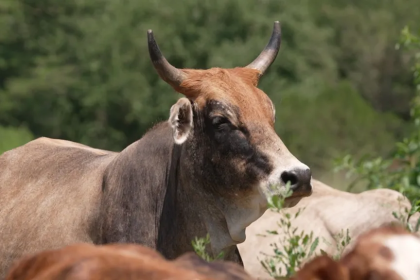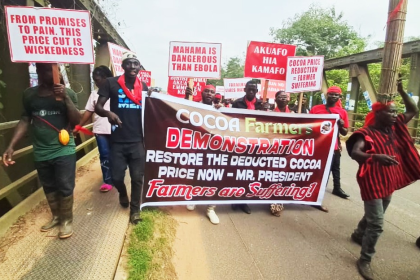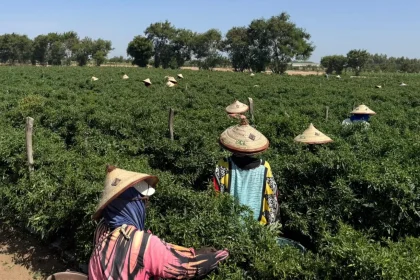On a quiet morning in Tolon, a farmer named Yussif Adams walks through his maize field, worried about how little he will harvest this season. Like many smallholder farmers in the Northern Region, his challenge is not a lack of hard work. It is low yields, limited access to inputs, and difficulty in getting fair market prices. For Yussif, the newly launched Feed Ghana Programme is more than a government initiative. It is a lifeline that could turn his farm into a thriving business.
Boosting agricultural productivity
The Government has introduced the Feed Ghana Programme to modernise farming, reduce reliance on imports, and create jobs. The initiative seeks to support farmers with improved seeds, fertilisers, mechanisation services, and extension advice. It also promotes climate-smart practices to raise yields in cereals, legumes, vegetables, tubers, and tree crops, while expanding livestock and poultry production.
The programme targets commodities where Ghana has high demand and untapped potential. These include rice, maize, soybean, sorghum, millet, tomato, pepper, onion, cassava, yam, plantain, poultry, cattle, goats, sheep, pigs, cashew, shea, mango, coconut, and oil palm. By focusing on these value chains, farmers can both feed the nation and supply raw materials for agro-industries.
Reducing food imports
Ghana spends more than two billion dollars each year importing rice, poultry, onions, and other staples. This drains foreign exchange and exposes the economy to global price shocks. The Feed Ghana Programme seeks to cut this dependency by boosting domestic production. Increased rice and poultry output, together with year-round vegetable farming, is expected to reduce imports and stabilise food supplies.
Creating jobs for the youth
A central promise of the programme is job creation. Opportunities will open up across the agricultural value chain, from production and mechanisation services to storage, processing, transport, and marketing.
Youth, women, and persons with disabilities are a priority group. With support in training, financing, and market access, they will be encouraged to take up agribusiness ventures.
Sub-programmes
The Feed Ghana Programme is anchored on nine sub-programmes:
i. Crop Development – improving productivity in cereals, legumes, vegetables, and tubers.
ii. Livestock Development – expanding poultry, cattle, sheep, goats, and pigs.
iii. Farmer Service Centres – one-stop shops for seeds, fertilisers, mechanisation, and extension.
iv. Farm Bank Development – mobilising banks to extend credit tailored to farmers.
v. Institutional Farming – encouraging schools, prisons, and hospitals to grow food for self-reliance.
vi. Feed the Industry – linking farmers directly with agro-processors.
vii. Infrastructure and Agro-Production Enclaves – building irrigation systems, warehouses, and production hubs.
viii. Innovative Agricultural Financing – blending concessional loans, insurance, and commercial bank lending.
ix. Institutional Development and Regulatory Framework – ensuring policies support sustainable growth.
Together, these sub-programmes cover production, markets, finance, and institutional support. This makes the programme comprehensive in scope.
Spotlight on Farmer Cooperatives
At its core, the programme promotes farmer cooperatives and Farmer-Based Organisations (FBOs). By working in groups, farmers gain access to inputs and mechanisation through Farmer Service Centres. They also receive subsidised livestock and poultry inputs, credit, insurance, and training in leadership and record-keeping.
Cooperatives can negotiate better prices, reduce costs, and link directly with buyers and agro-processors. This ensures that smallholder farmers are not left behind but become key drivers of food security.
Participation Requirements
To join the programme, farmers must belong to FBOs or cooperatives. Groups must have between 15 and 40 members. Registration requires information such as the community name, commodity type, group size, and total cropped area. A membership list with Ghana Card numbers and contacts must also be provided.
Existing groups are expected to indicate whether they are registered with the Department of Cooperatives, District Assembly, or Department of Agriculture.
Role of Agric Departments
Regional and District Agricultural Departments will play a central role. They will register new FBOs, validate existing cooperatives, and provide technical support. They will also monitor group activities and lead public education campaigns to ensure farmers benefit fully from the programme.
National call to action
The Feed Ghana Programme is more than an agricultural project. It is an economic transformation agenda. By raising productivity, reducing imports, and creating jobs, it has the potential to reshape Ghana’s food systems and empower rural communities.
For Yussif in Tolon and many like him, the promise is higher yields, better incomes, and sustainable livelihoods.
MoFA is urging farmers and cooperatives nationwide to embrace the initiative, stressing that its success depends on full participation at all levels.
GNA






